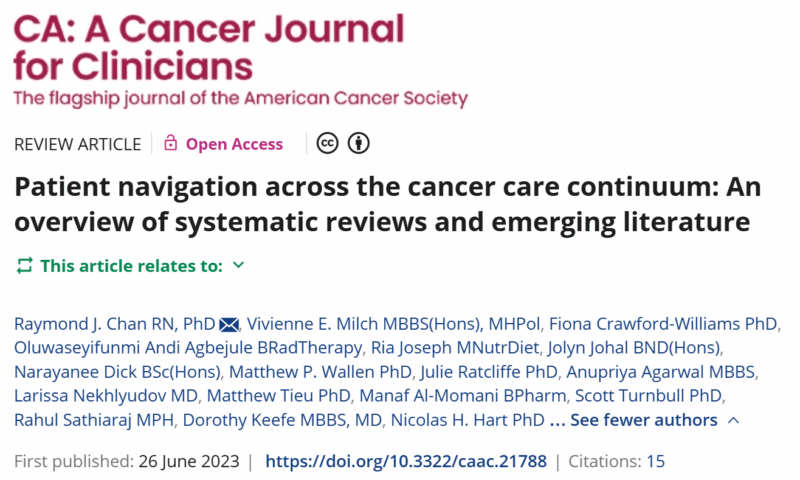Kendra Paabo, Manager of Marketing and Program Informatics at Brain Tumor Network, shared a post on LinkedIn:
“Most people have no clue what oncology navigators really do.
They think it’s just about scheduling appointments.
That’s a huge mistake.
Navigators are more than clerks or secretaries. They are the lighthouse in a tough journey.
Let’s break down these misconceptions and reveal the truth behind oncology navigation.
Misconception 1: A Navigator’s role is clearly defined.
Reality: Roles vary wildly. No standardization exists. One navigator might do one thing, while another does something completely different. This lack of clarity can confuse patients and providers alike.
Misconception 2: Navigators only schedule appointments and ensure patients stick to their care schedules.
Reality: Navigators do much more. They educate patients, empower them, coordinate care, advocate for their needs, and track outcomes. They are the glue holding the cancer care process together.
Misconception 3: Only nurses can be navigators.
Reality: Not true. Navigators come from all walks of life. Social workers, public health professionals, even cancer survivors can become navigators. Their diverse backgrounds enrich the navigation experience.
Misconception 4: Navigation is redundant with case management or social work.
Reality: Navigation stands on its own. It’s proactive. Navigators guide patients through the entire cancer care continuum. They promote empowerment and ensure patients feel supported every step of the way.
Misconception 5: Navigation has little impact on outcomes.
Reality: This couldn’t be further from the truth. Navigation improves treatment adherence. It boosts patient satisfaction and helps reduce disparities in care. Navigators make a real difference in patients’ lives.
Understanding these misconceptions is crucial.
Oncology navigation is not just a job. It’s a lifeline.
Navigators are essential for patients facing a cancer diagnosis. They provide the support and guidance that can change lives.
So, next time you think about oncology navigators, remember the truth. They are not just appointment schedulers. They are champions for patients in need.”
Raymond Chan, Deputy Vice-Chancellor of Research at Flinders University, shared this post, adding:
“This is a great post clarifying cancer patient navigation! It’s about putting the patient back in the driver’s seat! It’s not about doing to or doing for! But doing with!’
For more info, check out our paper in the American Cancer Society Journals CA: A Cancer Journal for Clinicians.”
Title: Patient navigation across the cancer care continuum: An overview of systematic reviews and emerging literature
Authors: Raymond J. Chan, Vivienne E. Milch, Fiona Crawford-Williams, Oluwaseyifunmi Andi Agbejule, Ria Joseph, Jolyn Johal, Narayanee Dick, Matthew P. Wallen, Julie Ratcliffe, Anupriya Agarwal, Larissa Nekhlyudov, Matthew Tieu, Manaf Al-Momani, Scott Turnbull, Rahul Sathiaraj, Dorothy Keefe, Nicolas H. Hart.
You can read the Full Article in CA: A Cancer Journal for Clinicians.

More posts featuring Kendra Paabo and Raymond Chan.


